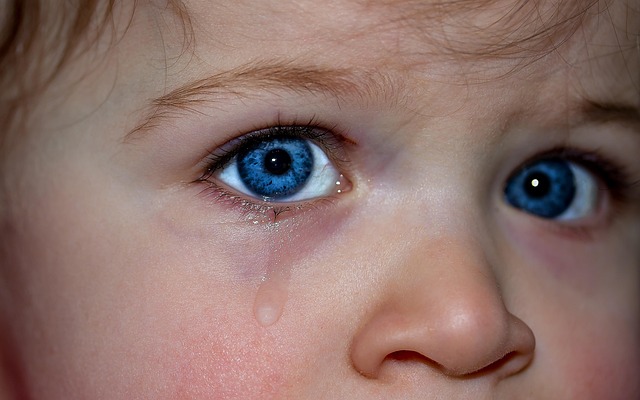Juvenile law protects minors' interests, addressing challenges like neglect, abuse, and family conflicts through specialized attorneys. Key areas include child welfare, ensuring proper procedures, and juvenile delinquency, focusing on rehabilitation. Juvenile lawyers navigate complex court processes, advocate for children's best interests, and provide vital foster care legal services, upholding rights and guiding families. Child neglect and abuse are reported to child protection agencies, with lawyers offering guidance for parents and advocating for the child. In severe cases, foster care placements require legal navigation through juvenile court proceedings. Dedicated juvenile lawyers ensure fair treatment, advocate for children's rights, and promote a safe environment, breaking cycles of delinquency and fostering healing. Child advocacy is crucial in the foster care system, securing services and rights for vulnerable children.
Protecting children’s interests in legal situations requires a deep understanding of juvenile law and its role in child protection. This comprehensive guide delves into key aspects of ensuring justice for young ones, including identifying and reporting child neglect and abuse, navigating juvenile court procedures, and the vital importance of child advocacy and legal services in foster care. With insights from experienced juvenile lawyers, this article equips parents, caregivers, and advocates with knowledge to safeguard children’s rights against delinquency and abuse.
- Understanding Juvenile Law and Its Role in Child Protection
- Identifying and Reporting Child Neglect and Abuse
- Navigating Juvenile Court Procedures for Children's Rights
- The Importance of Child Advocacy and Legal Services in Foster Care
Understanding Juvenile Law and Its Role in Child Protection

Juvenile law plays a pivotal role in safeguarding children’s interests within the legal system. This specialized area of law focuses on the unique needs and challenges faced by minors, ensuring their rights are protected in various scenarios, from child welfare cases to juvenile delinquency. When a child is involved in a legal matter, a qualified juvenile lawyer becomes an advocate for their well-being. Their expertise lies in navigating complex juvenile court procedures, advocating for the best interests of the child, and providing vital foster care legal services.
Child protection is at the heart of juvenile law, addressing issues such as neglect, abuse, and family conflicts. Child welfare attorneys and child rights lawyers work tirelessly to ensure that children’s voices are heard and their fundamental rights upheld. They guide families through the legal process, offering support in cases involving child neglect, ensuring proper procedures are followed, and advocating for appropriate outcomes. This specialized field also addresses juvenile delinquency, providing a path towards rehabilitation and reintegration while holding perpetrators accountable.
Identifying and Reporting Child Neglect and Abuse

Identifying and reporting child neglect and abuse is a critical aspect of juvenile law and child welfare. Signs of potential neglect or abuse can be subtle, but trained professionals and concerned individuals can play a vital role in ensuring children’s safety. Child protection agencies receive reports from various sources, including teachers, neighbors, and medical professionals, who may observe unusual behaviors or physical indicators. These reports are carefully evaluated to determine if further investigation is required.
If there’s reasonable cause to suspect child neglect or abuse, it’s crucial to involve a child welfare attorney or a juvenile lawyer who specializes in child rights. They can guide parents or guardians through the process and ensure their rights are protected while also advocating for the child’s best interests. In cases of severe abuse or neglect, children may need to be placed in foster care, where legal services from a child welfare attorney become essential to navigate the complexities of juvenile court proceedings.
Navigating Juvenile Court Procedures for Children's Rights

Navigating Juvenile Court Procedures for Children’s Rights
When a child is involved in legal situations such as child welfare cases, juvenile delinquency, or allegations of child abuse, understanding the juvenile court system is crucial. The process can be complex and intimidating, but having a dedicated juvenile lawyer by their side is essential. These professionals specialize in child protection and advocate for the rights of young individuals within the court. They ensure that children’s interests are protected throughout the entire process, from initial hearings to potential foster care placements or trials.
Child welfare attorneys play a vital role in ensuring fair treatment and outcomes. They guide their young clients through juvenile court, explaining procedures and options while fighting for their rights. Whether it’s addressing issues of neglect, abuse, or delinquency, these lawyers offer specialized legal services tailored to the unique needs of children. Their goal is to foster a safe and supportive environment, protect the child’s best interests, and ensure that all decisions are made in light of their well-being and future prospects.
The Importance of Child Advocacy and Legal Services in Foster Care

Child advocacy and legal services play a pivotal role in ensuring that the rights and interests of children involved in foster care are protected. Foster care, being a temporary placement for children who cannot live with their biological parents due to various reasons such as abuse, neglect, or family crises, necessitates specialized legal support. Juvenile law attorneys specializing in child welfare have the expertise to navigate complex legal systems and advocate for the best interests of these vulnerable individuals.
These legal services extend beyond representation in court. Child protection lawyers also provide guidance on compliance with foster care regulations, help secure appropriate placements, and ensure that children receive necessary support services like education, healthcare, and therapy. By addressing these needs, they contribute to a more stable and positive environment for the child’s development and overall well-being. This proactive approach is crucial in breaking the cycle of juvenile delinquency and promoting healing from past traumas, including child abuse or neglect.
Protecting children’s interests in legal situations requires a comprehensive understanding of Juvenile Law and its role in ensuring their safety and well-being. By identifying and reporting child neglect and abuse, navigating juvenile court procedures for children’s rights, and emphasizing the importance of child advocacy and legal services in foster care, we can create a more robust system to safeguard our youngest members. Engaging the expertise of specialized juvenile lawyers and child welfare attorneys is pivotal in addressing issues of juvenile delinquency and providing vital support to children in need.
